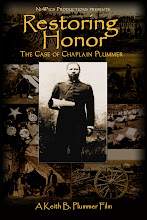
Mr. Holly was my last interview of the day on September 18th. I met with him at his home in Maryland. Mr. Holly and I became friends years ago when I worked as the Chief Photographer for Hearst-Argyle Television's Washington Bureau and he was a national radio reporter for the Associated Press.
After we caught up a little, Mr. Holly told me that in the 60s he lived in Cleveland, Ohio, and was in high school when he heard Dr. King speak outside of a department store to raise money for the movement. "Many of the leaders would come . . . together and speak at different churches and raise money to go back south for the movement."
We also talked about life as a Black northerner in the 60s. He said you didn't have a problem getting a seat on a bus, but if you went to certain neighborhoods, you wouldn't "be surprised if you got stopped and asked what you were doing in that neighborhood."
We also talked about the day Dr. King was assassinated and the riots that ensued afterwards. He said that his neighborhood was crazy; "you could hear the glass breaking in the corner stores." Then we talked about how those same riots influenced how reporters would be selected to cover those events. Many news outlets were not able to get an accurate story because they did not have reporters of color to get the inside story. It either wasn't safe for non ethnic reporters or no one would talk to them. The news world started to realize it too needed to integrate.
It was a good interview and great to see an old friend.




.jpg)

